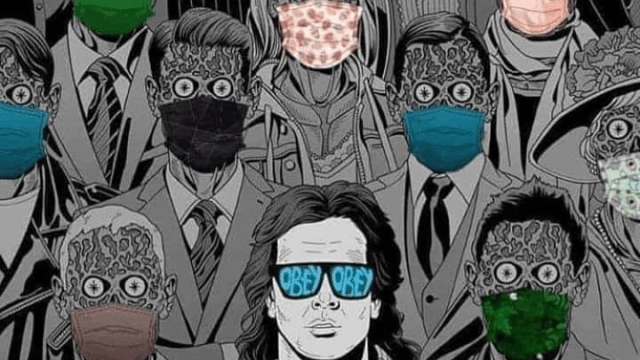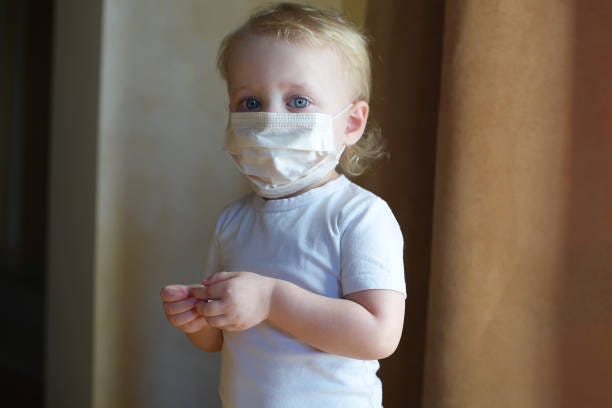Plandemic or Scamdemic?

Words are important, because the words we use play a major role in shaping the ideas we allow into our minds.
In March of 2020, once the infamous campaign of rampant worldwide grotesquery was upon us, I sensed instantaneously that the terms that were being promiscuously thrown around were simply no good. Something in me resolutely refused ever to say “the pandemic,” and also— though not quite as emphatically—rejected the usage of “quarantine” to describe the insanity that was being mandated under the cover of an “emergency order.”
I couldn’t have articulated at the time why I was avoiding these widely-used terms, though eventually I realized why: “pandemic” was a fearmongering term, used to cow people into obeying a set of blatantly repressive and unconstitutional measures, which would wreck economies, ruin livelihoods, separate family members from their loved ones, cause an unprecedented spike in depression rates among young people, and exponentially increase the incomes of the very rich while plunging may of the economically vulnerable into abject poverty. And all for the sake of slowing the supposed spread of an ostensibly “novel” virus which was mostly a mere inconvenience for the vast majority of people who allegedly contracted it.
Shutting the world down over what amounted to a trifle didn’t add up. It would have made sense to warn the elderly, the health-compromised, and those with various co-morbidities to take certain precautions under such conditions, but putting draconian restrictions upon the entirety of the population under such circumstances was obviously far from appropriate. And calling the imposition of such measures a “quarantine” lent such atrocities an undeserved aura of legitimacy.

So the words “pandemic” and “quarantine” never left my lips. “Lockdown,” however, struck me as completely apposite. The fact that the powers-that-be were actually embracing this term, which is commonly used by prison wardens taking punitive action against the incarcerated, spoke volumes about how our rulers actually saw us: to them, we were not free citizens with inalienable rights, but rather inmates on a prison planet.
*******************************************
Eventually, lockdown-dissidents settled on one of two terms to describe the event that dominated 2020 and, in many parts of the world, continued well into 2021. Some called it the “plandemic,” while others preferred “scamdemic.” I belong to the latter camp, because I think the scam of this operation is what ought to be emphasized. It had probably been planned, too, but evidence of its planning remains mostly circumstantial, and the desired end goal of the imposition of the ominously-labeled “new normal” remain up for debate.
The inherent scamminess of the operation, on the other hand, was self-evident from the jump, to all with eyes to see and ears to hear.
Like many scams, the “Covid” scam prevailed for almost two years because it was supported by loud, aggressive, and unscrupulous carnival barkers, backed up by a compliant media, who encouraged fealty to authority and discouraged critical thinking. Dissident voices were deplatformed with Soviet-style ruthlessness.
Yet when stripped of the authoritarian intimidation of its well-funded propaganda machine, justifications for the lockdown fell to pieces. It also became increasingly evident that its own promoters didn’t buy the swill they were shilling. One scandalous story after another presently emerged, in which everyone who was paying attention saw that the most ardent and sanctimonious lockdown-backers were not masking, not “social distancing,” and not practicing the compliance that they demanded from the hoi polloi. If they didn’t take these rules seriously, why the hell should we?
In the UK, the hypocritical behavior of various higher-ups in the Boris Johnson administration during lockdown led in short order to the dismantling of all prior repressive measures, including those particularly onerous vaccine mandates. The lockdowns finally ended, not due to the achievement of any stated benchmark via forced isolation of citizens (“flattening the curve,” etc.); instead, the “Covid” era collapsed when it became clear that the lockdown backers no longer had the clout to maintain their tyrannical usurpations of power.
Put differently, it was politics— not the manifestation of any truly legitimate public health crisis— that initially put the lockdown policies into effect; similarly, it was politics, not the cessation of that same supposed public health crisis, that brought about the end of the lockdown.
